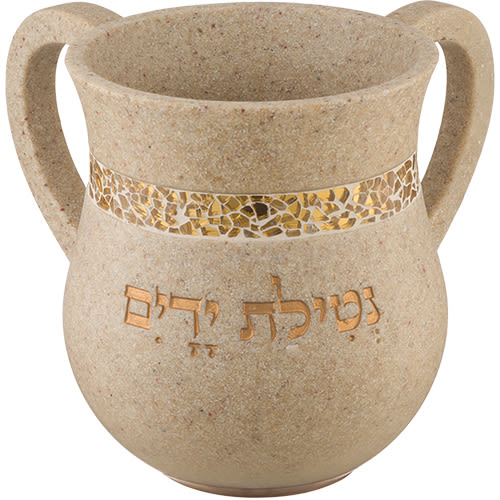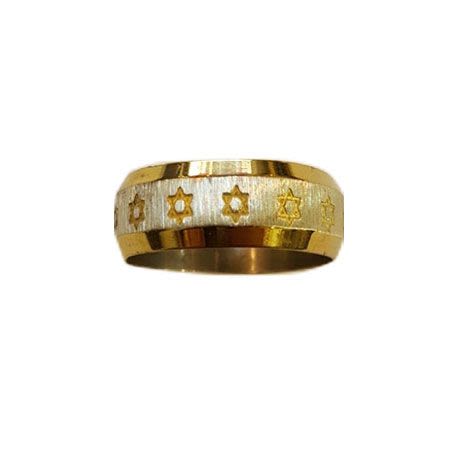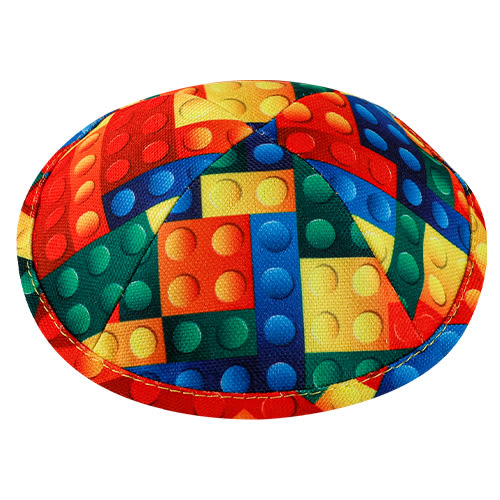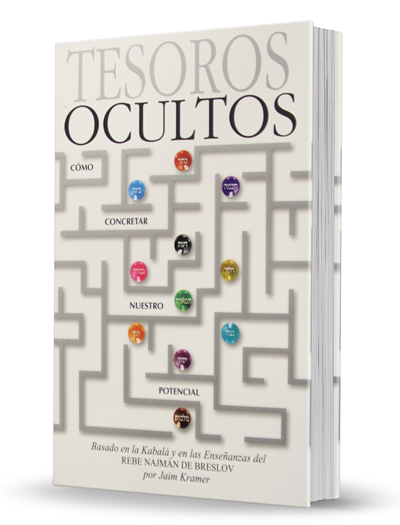
The Mission
Don't be surprised when you hear of young, upright people that die suddenly; they've simply completed their tikkun - their soul correction...

A person comes to this earth for the express purpose of fulfilling mission. Longevity depends on the task we have to complete. One’s death – even in a sudden tragedy or accident – is always the result of Hashem’s personal decision. Some live for twenty years and others for one hundred years, but they all leave this earth at the precise moment that Hashem decides. A mind-boggling set of divine considerations influence the circumstances of a person’s life and longevity – the person’s deeds, former lives, public edicts, and other criteria that defy our understanding.
Some souls come to this earth for a short and specific tikkun, and then return to the upper worlds. Such souls are usually remarkably special people, with little or no evil inclination, gentle, kind, and pleasant. Therefore, don’t be surprised when you hear of young, upright people that die suddenly; they’ve simply completed their tikkun – their soul correction and mission on this earth.
Rabbi Isaac Luria Ashkenazi, the famed "Ariza’l" and 17th Century C.E. father of Kabbala from Safed, teaches that a person encounters most resistance in the area of his or her mission on earth, since the Yetzer Hora – the evil inclination – doesn’t want them to complete their mission successfully. The more a person is hampered by the Yetzer Hora, the more he or she has to accomplish on earth.
A Brief Visit
Sometimes, a soul makes a brief visit to this earth. One story tells about the Ariza’l who was the sandek, or godfather, at a bris; immediately after the circumcision, the baby died. When the baby’s friends and relatives wailed like wounded animals, the Ariza’l said, "Why do you cry? You merited in hosting the soul of our master, Rebbe Joseph Karo (a contemporary of the Ariza’l and author of the Shulchan Oruch, Code of Jewish Law)!
With his holy spirit, the Ariza’l saw that Rabbi Joseph Karo died and arrived at the gates of heaven. Rabbi Joseph had fulfilled every one of Hashem’s commandments with didactic precision, except for one – circumcision. When he was born, he was jaundiced and therefore circumcised later than the prescribed age of eight days. His entire tikkun was to return to earth and be circumcised on the eighth day of his life; he had no further reason to remain on earth.
The Ariza’l knew every soul, its background, and its mission on earth. His testimony shows how our lack of even one critical detail makes Hashem’s lovingkindness seem like cruelty, heaven forbid.
Like a gigantic jigsaw puzzle, if one piece is missing, the entire picture seems flawed.
Emuna – our unshakable belief and trust in Hashem – fills in the missing pieces that our limited vision sometimes creates.
A Deposit for Safekeeping
The Midrash (Mishli, 31) relates a poignant story about the holy Tanna (2nd Century CE Mishnaic sage) from Tiberias, Rebbe Meir Baal HaNess: One Sabbath, Rebbe Meir sat in the house of study, unaware that both of his sons had died. Bruria, his wife, withheld the bitter news from him, covered the two bodies with a sheet, and moved them up to the attic.
That evening, after Sabbath ended, Rebbe Meir returned home and asked, "Where are the two boys?" Bruria changed the subject and served her husband his evening meal.
When Rebbe Meir finished his grace after the meal, his wife said, "Rebbe, I have a question."
"Feel free to ask, my wife," he replied.
"If a person gave me a deposit for safekeeping some while ago and now he has come to claim it, what should I do?"
"Simple," replied Rebbe Meir, "you must return the deposit."
Bruria took Rebbe Meir by the hand, led him up to the attic, and showed him his two lifeless sons. Rebbe Meir began to cry, lamenting his grievous loss.
"Rebbe," his wife said, "didn’t you just tell me that adeposit for safekeeping must be returned when the owner comes to claim it?
Rebbe Meir stopped crying immediately and quoted (Job 1:21), "Hashem has given, Hashem has taken, blessed be Hashem’s name!"
Rebbe Chanina, another holy sage and contemporary of Rebbe Meir, praised Bruria and her poignant consolation that so effectively her husband’s grief, saying (Proverbs 31:10), "A woman of valor, who shall find?"
The Talmud (tractate Berachot, 5b) tells of the renowned sage Rebbe Yochanan, who having lost all his ten sons, would walk around with the tooth of his tenth son in his pocket and declare, "This is the bone of my tenth son that died. See how I lost ten sons, but am still happy and smiling! I realize that this world is not our principle concern, and those holy souls that were my sons simply finished their tikkun and respective missions in this world, so why should I be sad? They are now in a world of eternal bliss, but we are still suffering on this lowly earth."
Rebbe Nachman of Breslev lost his only two sons, his first wife, and left this world at the young age of 38.
Many Tzaddikim buried loved ones and suffered other grueling tribulations, yet everyone knew that they were pillars of righteousness.
Often, there’s no connection between longevity and a person’s good deeds. Our sages said that if Moshe (Moses) – the holiest of men – was a mortal, then surely we all are mortals.
We shudder when hearing about the loss of a young person. Actually, the thought of an elderly person’s death should jolt us even more, showing us that death is unavoidable. But, when a young person dies, people are likely to say, "That won’t happen to me!"
Don’t Forget the World to Come
Oftentimes a person takes his initial steps as a spiritually-awakened Jew, or Baal Teshuva, and suffers some form of damage – physical, financial, or otherwise. The resulting question usually sounds like this: "Why now, when I’ve chosen the path of Torah and have started to observe the Sabbath, do I deserve such punishment? Is this the reward of Torah?"
Still other times, a new Baal Teshuva dies a sudden, tragic death.
People ask, "How is this possible? What’s going on here? A new Baal Teshuva that left a life of glitter and good times to devote his life to Hashem…He should have lived forever! Why did Hashem take him so suddenly?"
The most famous question of the perplexed is: "What about the Holocaust? Why did Hashem allow six million Jews – many of whom were holy and righteous Torah scholars – to die in the gas chambers and concentration camps?"
People forget that this world is a place of temporary significance at best, where a soul assumes a bodily form to perform a mission and achieve a needed tikkun. But, if they’d remember that the life and health of the soul is our prime concern – and not the body – then their questions would fall by the wayside.
Mortal Man
A person can’t possibly know when his or her tikkun has been achieved. No one knows how they’ll leave this world, either. Yet, a person should remember that he or she is a mortal, and destined to die some day. Shlomo Hamelech (King Solomon), the wisest of all men, advised (Ecclesiastes7:2): "It is better to frequent the house of mourning than the house of feasting, for it signifies the end of all men – and the living should take it to heart!"
Apparently, the above advice to attend funerals and visit mourners is simple: By visiting mourners, a person will remember that someday, his or her life will terminate also. Surprisingly though, certain professionals like doctors, nurses, and geriatric attendants see death all the time, yet how many of them are aroused to teshuva? Many of them remained bogged down in the pursuit of material amenities their entire lives. That’s why Shlomo Hamelech stressed: "And the living should take it to heart!" All of us must remember that we’re mere mortals, here today and gone tomorrow; if we forget, we’re liable to fall into spiritual slumber. The fear and awe of our final day on earth and subsequent day of reckoning helps us monitor our thoughts, speech, and deeds. When establishing our list of priorities, we should remember that fame and fortune are worthless in the grave; this world’s amenities are worthless in the next world. Our ultimate objective is the world to come, and emuna will get us there.
Truth
Now that we have a better understanding of our purpose on this earth, is it logical that Hashem sends us here without giving us an indication of what we’re supposed to do? Would he distribute reward and punishment without informing us of what’s permissible and what’s not? Would Hashem let us all grope around in the dark with no direction? Of course not.
Hashem gave mankind, and the Jewish people in particular, clear instructions as to one’s purpose in life. Not only do we have our holy Torah and its commandments; we have the great tzaddikim – the righteous sages and spiritual generations of every generation – that lead us on the path of truth. The path of truth leads to genuine emuna.
Conversely, one cannot hope to achieve and internalize genuine emuna without Torah, for in the absence of Torah, humans – subjectively swayed by their own vested interests and appetites – decide their own truth. As mentioned earlier, nations and societies can arrive at utterly warped conclusions, such as genocide of another people, when forming their own "truths".
To be continued….













Tell us what you think!
Thank you for your comment!
It will be published after approval by the Editor.